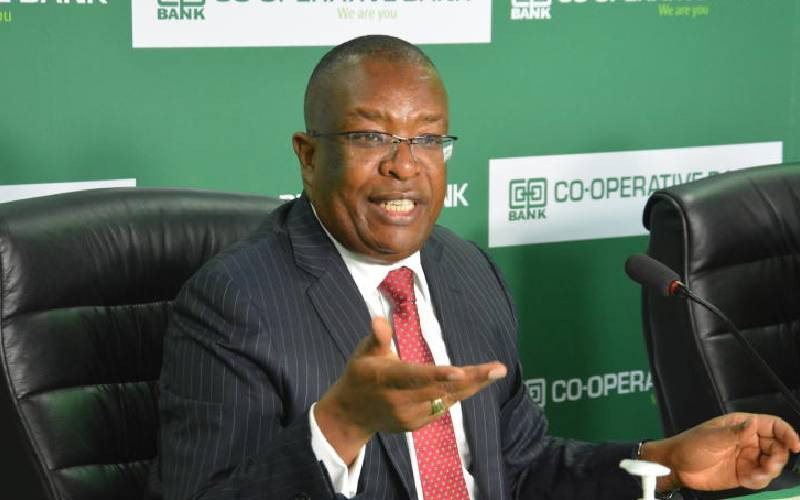×
The Standard e-Paper
Kenya’s Boldest Voice

Gideon Muriuki, the chief executive of Kenya's Cooperative (Coop) Bank, has increased his stake in the tier-one lender, tightening his control over the bank, according to regulatory filings.
Muriuki's shareholding in Coop Bank has risen to 2 per cent from 1.75 per cent previously, the filings showed.







